Poland workshop – 5-6 December
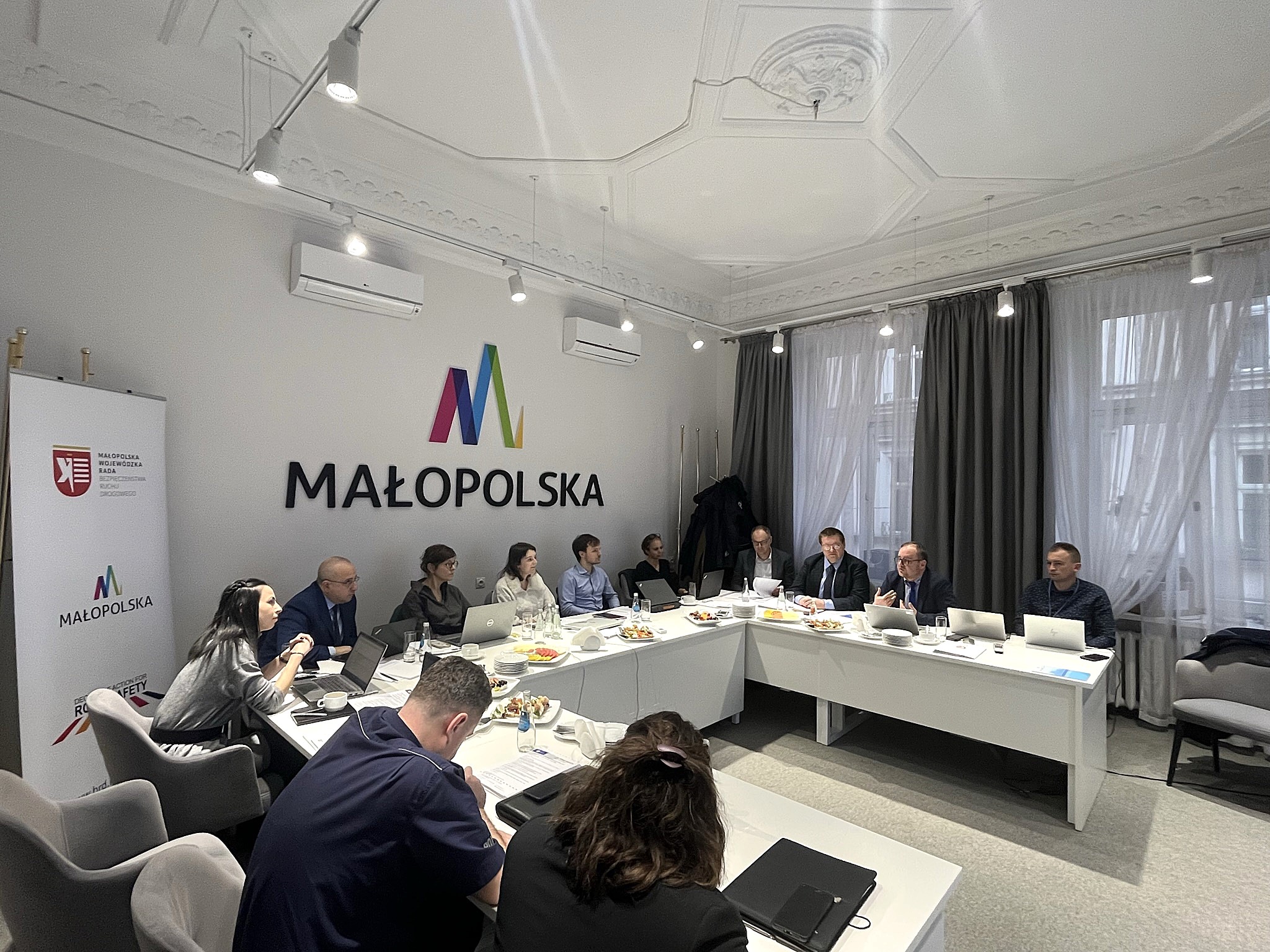
The second workshop of the EU Road Safety Exchange (EURSE) project’s second phase was held in Krakow and Katowice, Poland, on 5-6 December 2024. The event was organised in cooperation with the Secretariat of the National Road Safety Council of Poland and the Małopolska Provincial Road Safety Council .
Participants included representatives of the Małopolska Voivodeship, the Road Traffic Department of the Małopolska Police, Krakow University of Technology, and representatives of Poland’s EURSE project partners – Denmark and Poland.
The first day of the workshop took place at the Marshal’s Office of the Małopolska Province in Kraków. The program began with a warm welcome from Wojciech Pałko, Secretary of the Małopolski Voivodeship.
This was followed by an overview of the road safety situation in Poland and the Małopolska region given by Marcin Filipek from Road Traffic Department of the Provincial Police Headquarters in Kraków. The figures presented showed significant improvements over the years and the relatively good performance of the region in the national statistics.
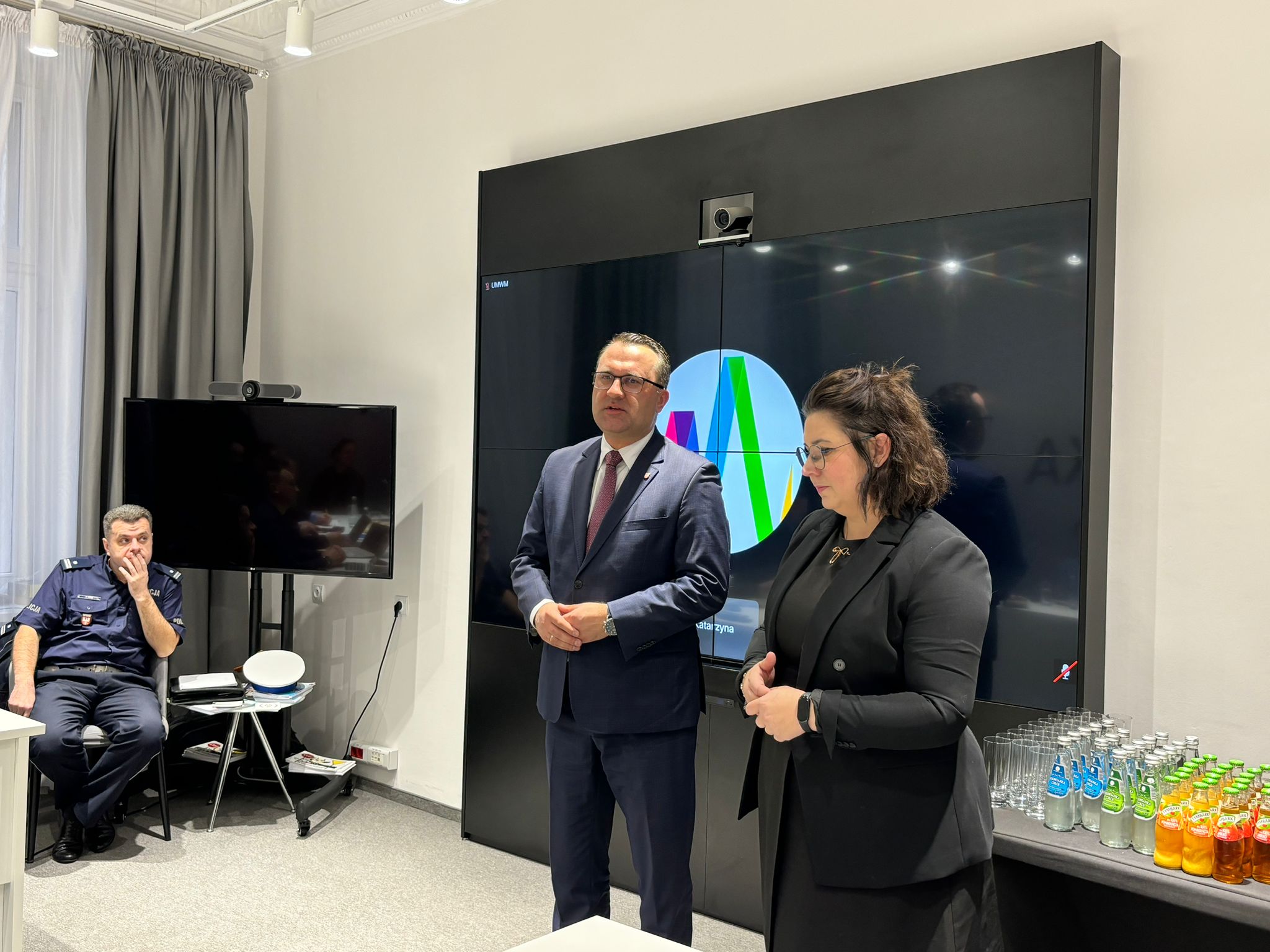
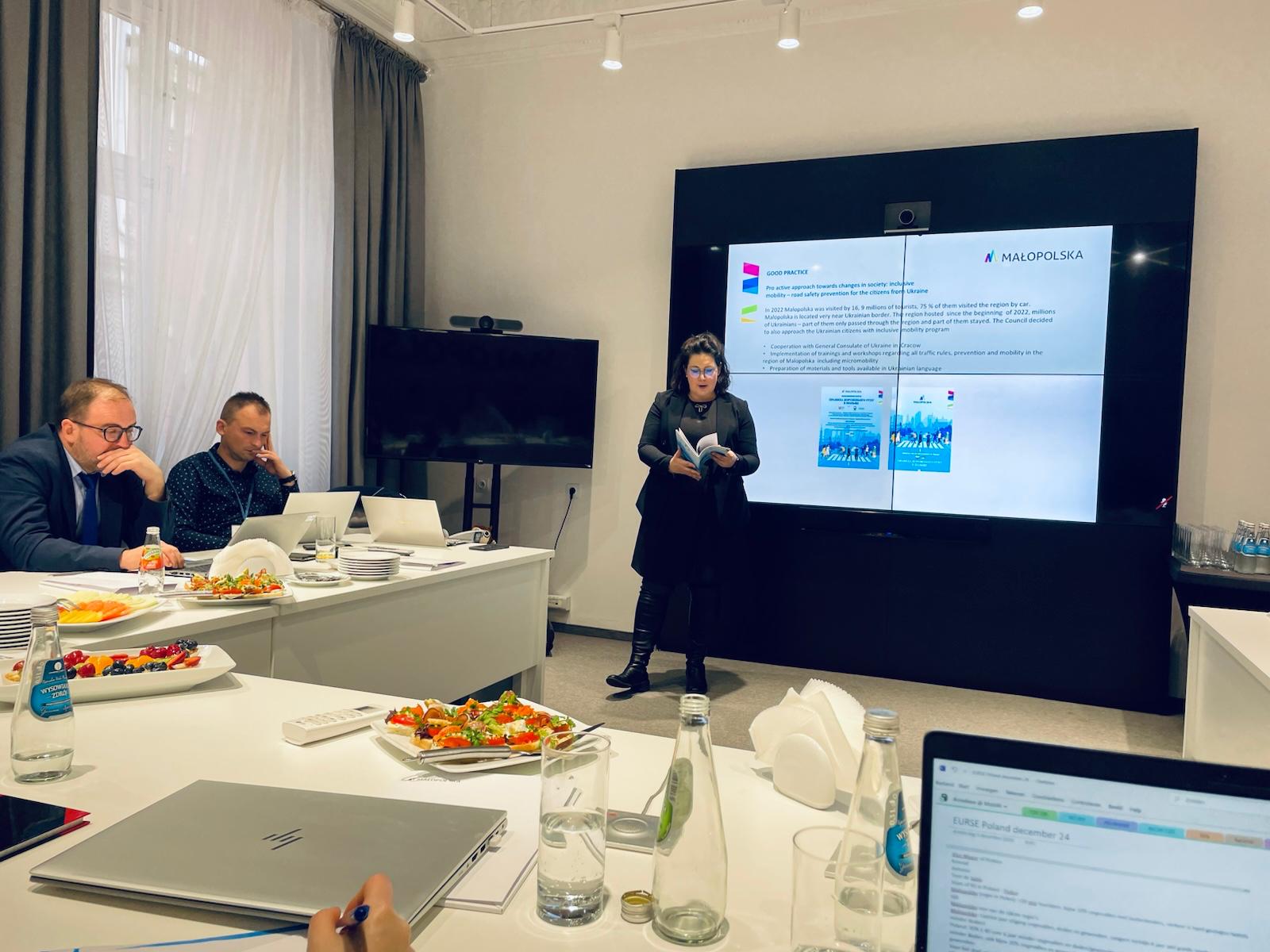
Katarzyna Dobrzańska-Junco, Secretary of the Małopolska Road Safety Council presented the region’s work on road safety, emphasising good practices from the region, including traffic education materials for Ukrainian drivers. Other examples included pedestrian safety improvements, including illuminated crossings, speed limit reductions, prevention programs targeting both drivers and pedestrians, and enhanced post-crash response with psychological support for victims and families.
Key insights from the study visit to Copenhagen were also presented, highlighting initiatives to improve road safety education and future plans.
Konrad Romik, Secretary of the National Road Safety Council, presented Poland’s ongoing road safety improvements and new legislative proposals, also inspired by the exchanges of the EURSE project. These include stricter penalties for exceeding speed limits by over 50 km/h and introducing a 0.0 BAC limit for novice drivers.
Poland has recently made significant efforts to improve road safety for elderly people, a common challenge among many EU Member States, by promoting various campaigns and establishing special training centres to help the elderly feel safer on the roads.
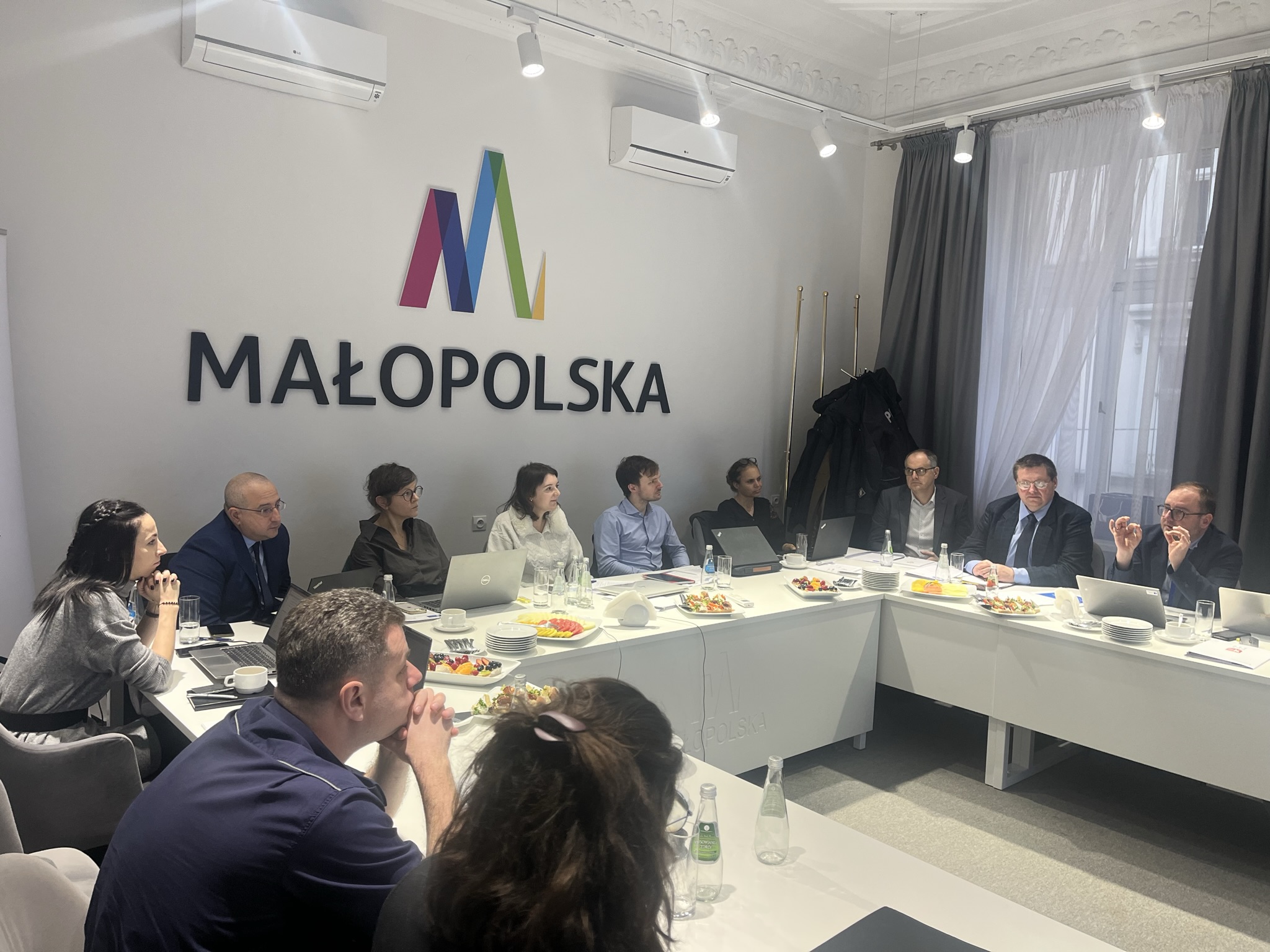
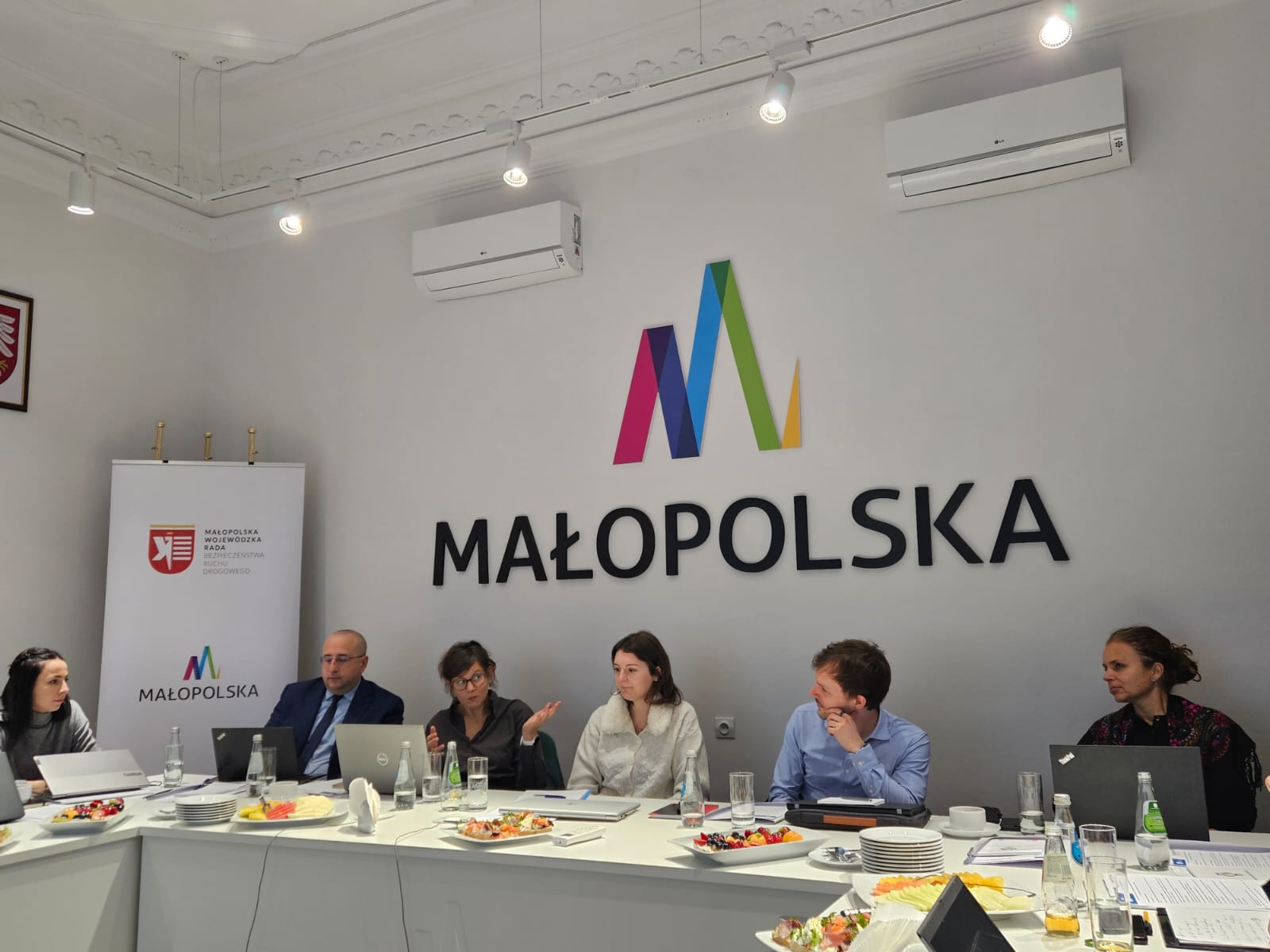
Following up on the study visits organised earlier in the year, experts from Denmark and Belgium presented some good practices. Lise Heiner Schmidt from the Danish Road Safety Council highlighted school-based road safety education and its evaluation methods in Denmark, while Bjørn Olsson presented Danish measures against reckless driving, a topic of interest for Poland.
Anneliese Heeren and Caroline Pomazi from the Federal Public Service Mobility and Transport in Belgium discussed the Belgian experience with the alcohol interlock program and gave a short overview of the post-crash response framework.
The first day concluded with a walking tour of Kraków to observe the city’s road safety infrastructure and mobility transformation. The tour was guided by Mariusz Kieć – Ph. D. Eng, prof. Cracow University of Technology and included several stops alongside cycling infrastructure and measures put in place during the Covid 19 pandemic.
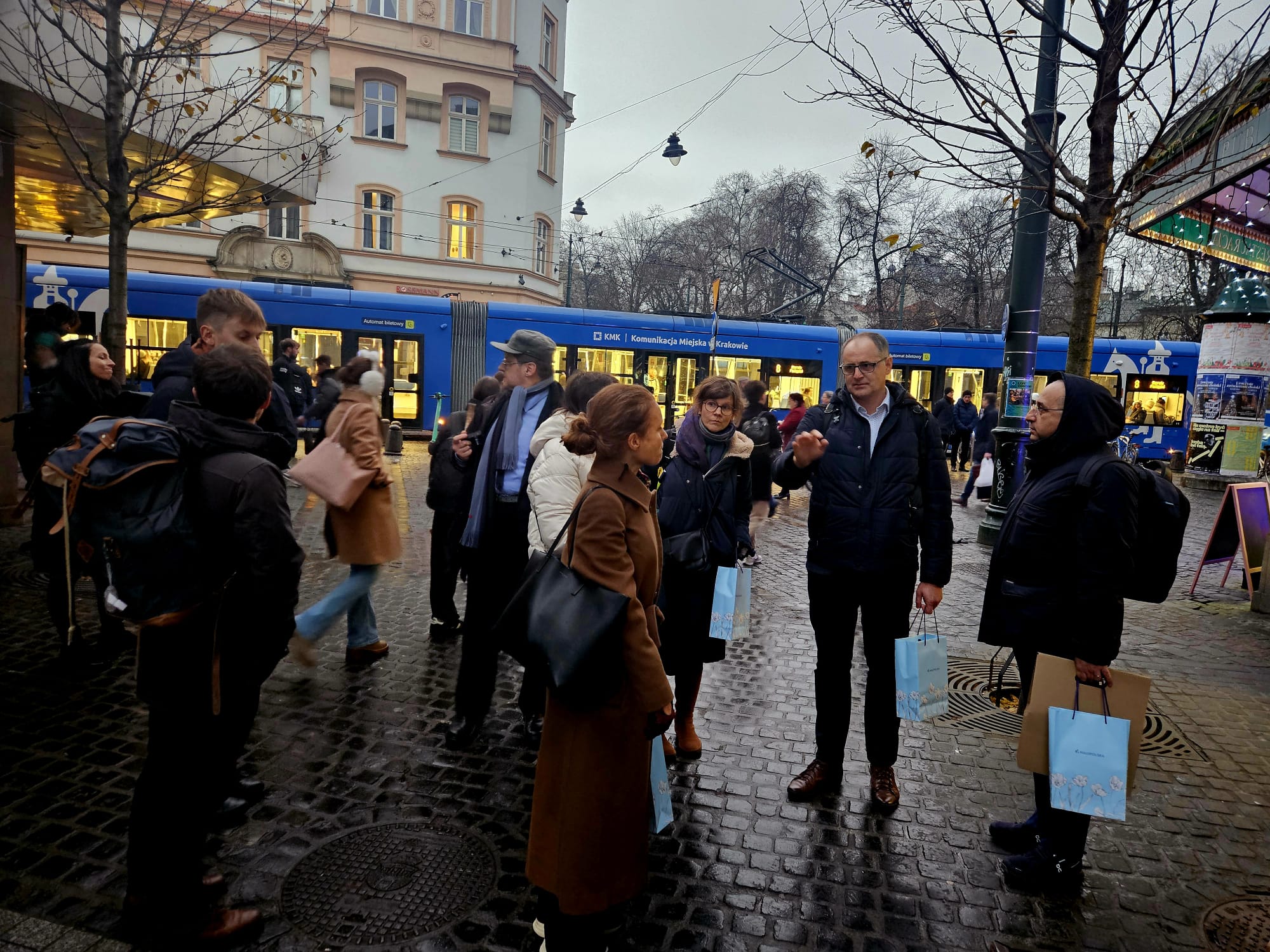
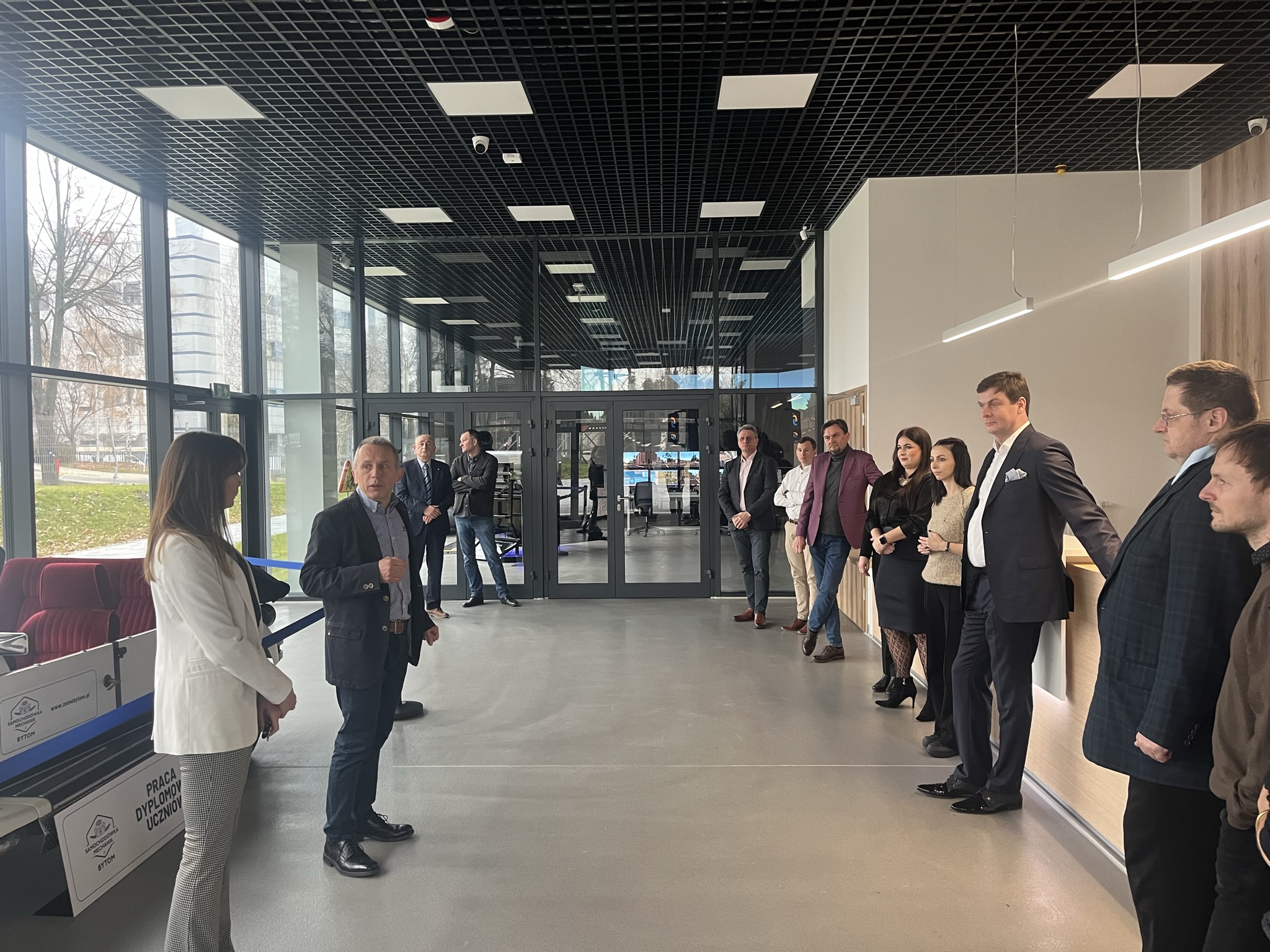
On the second day, participants visited the newly opened National Road Safety Centre in Katowice. The centre focuses on traffic safety education for all age groups, from young children and the elderly to professional drivers.
The group was warmly welcomed by Krzysztof Przybylski – Director of the Śląskie Voivodeship Road Traffic Center and Grzegorz Cius – Deputy Director of the Śląskie Voivodeship Road Traffic Center, alongside their colleagues working at the centre.
The centre has a variety of modern driving simulators that the EURSE participants had the opportunity to try accompanied by experienced trainers who explained the procedures and purpose. For example, they could simulate driving under the influence of alcohol or drugs, showing the impact of different BAC levels and the effects of various substances on reaction times and visibility.
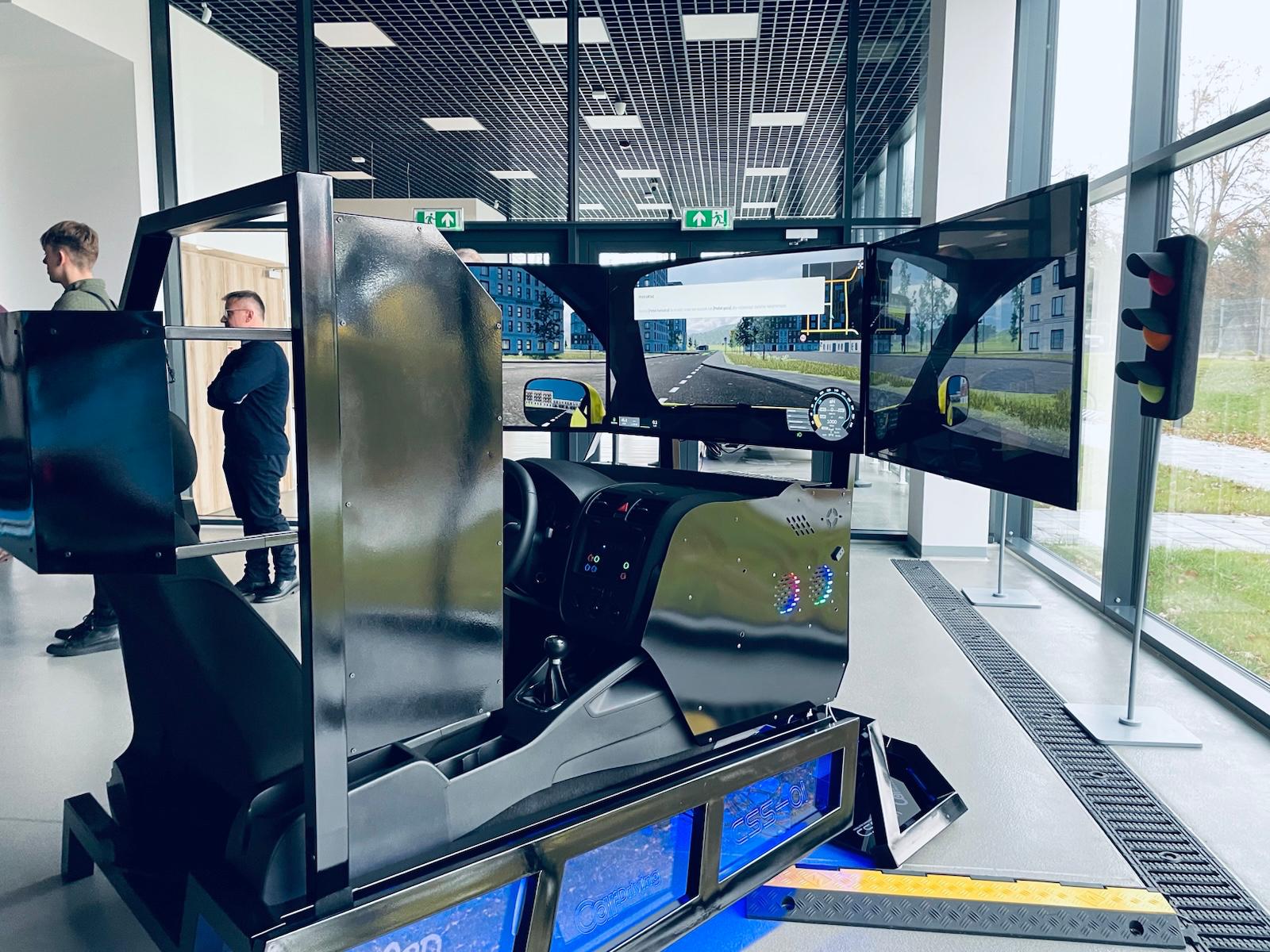
A specialised training simulator for professional drivers recreated realistic traffic conditions and included obstacles to test and improve their skills. Additionally, dedicated simulation areas focused on pedestrian safety, such as demonstrating pedestrian visibility at night. Simulations of driver-related collisions were also featured, serving as powerful tools to educate visitors about the consequences of unsafe driving behaviours.
The EURSE workshop in Poland was an opportunity to further exchange good practices and for the experts from Poland, Denmark and Belgium to strengthen the partnerships created through the project and bring forward ideas and initiatives to improve road safety.
Seven additional EURSE workshops are scheduled through 2025, with participating countries continuing to collaborate on key road safety topics identified in the project.
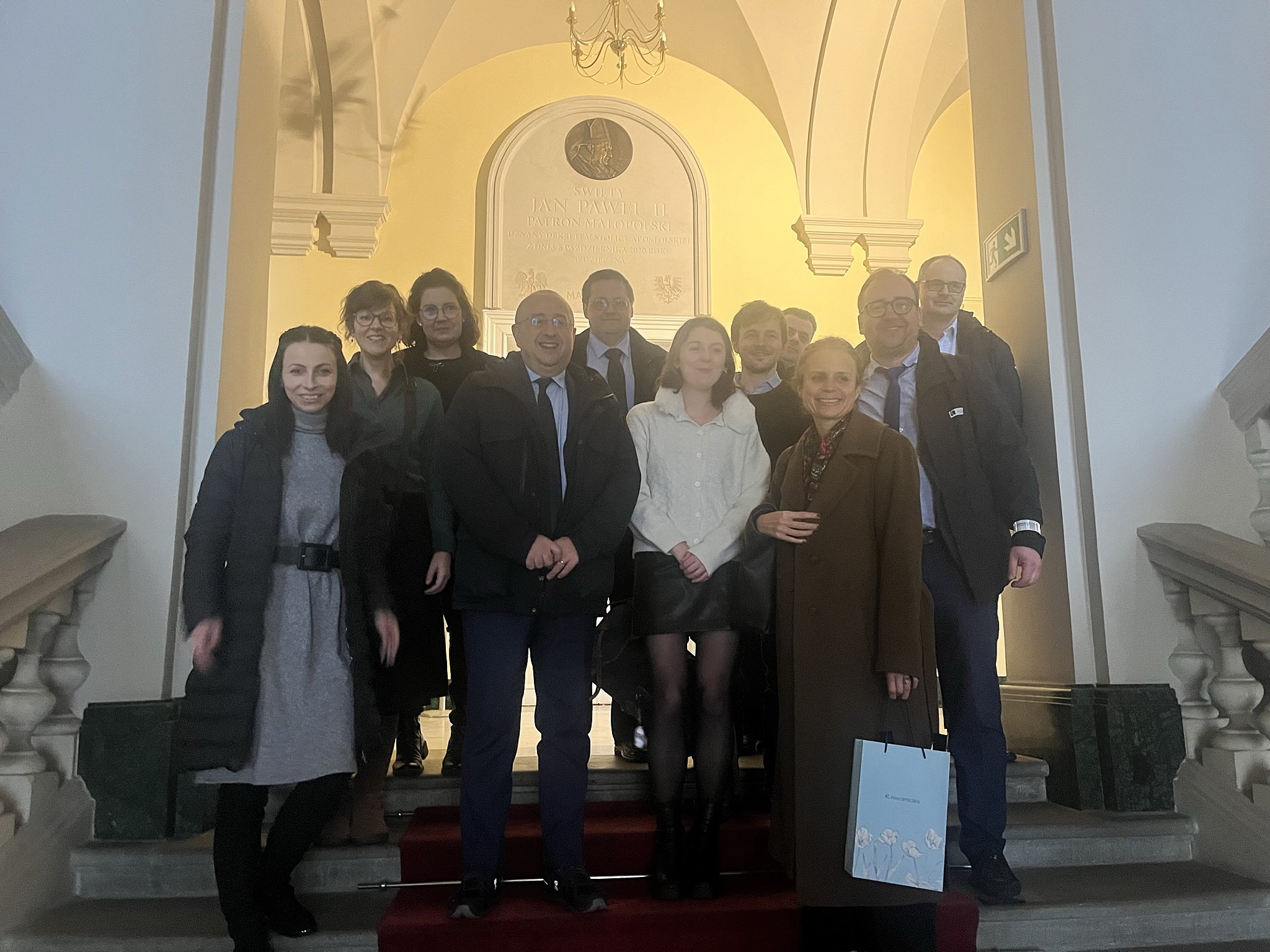
Further info: